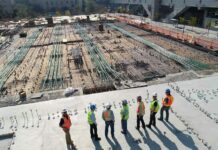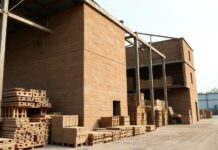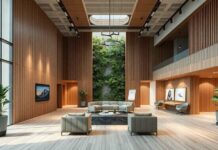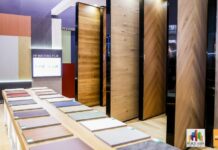Addis Ababa, or “new flower” the capital city of Ethiopia is situated in the central highlands of this East African country, +\- 2,300m above sea level. It sits on the edge of the Entoto mountain range which rise to 3,000m and which form the northern starting point of the Great rift valley that runs through the South east of the continent all the way down to Southern Africa.
Although situated only 9 degrees north of the equator the city with an estimated population of 2.7 million has a cool climate due to its high altitude.Ethiopia (previously known as Abyssinia) is one of the oldest independent countries in Africa and one of the oldest civilizations in the world. Like South Africa it has yielded some of humanity’s oldest traces.
Architecturally Ethiopia is most famous for its rock-hewn Christian churches most particularly in the holy city of Lalibela built as a replacement after the fall of Jerusalem to Islam in 1187.In more contemporary times Ethiopia was both founding member and permanent seat of the Organization of African Unity (OAU,) a role continued today with the African Union. Addis Ababa is therefore considered the capital city of Africa and the embassy in Addis Ababa is one of South Africa’s most important.
In 2005 the South African government was awarded land to establish a new chancery and MMA architects and a team of South African consultants’ along with local counterparts were appointed to realize the project.
The brief from the Ministry of Foreign Affairs was to use the chancery to express South Africa’s commitment to and importance in Africa, to recognize the significance of Ethiopia in Africa’s cultural, political and spiritual history, and to reinforce the links that bind the two countries.
In particular the design was to explore/demonstrate the potential of (material) cultural heritage as a generator of economic development.
The chancery complex consists of the main building of +\-5000m2, a staff recreation centre and three staff residences. Town planning ordinances prescribed a minimum coverage and a minimum of ground +3 storeys.
Situated on the corner of a busy and noisy street the complex is largely introverted with an internal atria and courtyards providing privacy for various functions.The buildings massing and volumes are inspired by the monolithic mountain churches with their small openings. Ethiopian Christianity has been the inspiration for a range of independent black church movements in South Africa. The internal flow and overlap of spaces both horizontally and vertically provide vertiginous and precipitous spaces that occur throughout the rift valley.
External materials are local pink granite and a thathritic stone ubiquitous in Addis but laid to different coursing. Black Zimbabwean granite is used as accents.
Due to the intense sun radiation at this altitude the building wears a silver veil, designed to screen the sun and the diplomatic goings-on in the public areas. Developed in collaboration with South African award-winning artist Usha Seejarim the veil consists of a stainless steel mesh with pop-riveted depictions of Khoisan rock art. According to Khoisan beliefs the rockface is a veil between this and the metaphysical world. It is also inspired by the Ethiopian silversmith tradition of various crosses.
In this way the design is an attempt to layer, within a metaphorical rift valley (the cradle of humankind) the great rock traditions and material cultural heritages of both Ethiopia and South Africa’s indigenous people.




























